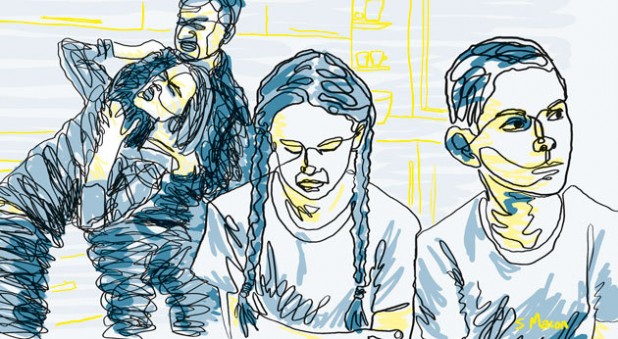In recent weeks, once again, domestic violence has become a conversation piece within the church.
In light of the Anglican Church’s national research project into intimate partner violence (IPV), several articles, blogs and social media posts were devoted to understanding both the significant incidences of IPV within the church, as well as examining our own practices and policies.
These are important conversations and, of course, at all times we must have them keeping in mind those victims who have lived this horror on a daily basis.
In the June edition of Southern Cross, an article referenced several comments from Archbishop Raffel and me reiterating the Sydney Diocese’s position that there is no place for abuse within any marriage, especially Christian marriages.
The article also observed the extensive and important work our Diocese has done in the development of policy and other resources, all the while recognising the need for our churches to continue to care for and support those suffering in this way.
I hope you might take the time to go online to the safe ministry website now and have a look at the various resources available there.
Since the release of the national report, I’ve had a number of conversations with women who have got in contact with me to share their stories. I don’t know these women, but they have bravely shared details of their experiences of abuse. One story stood out for me in particular – not because the abuse was worse than any other, but because it reminded me that the impact of domestic abuse is far reaching.
The woman I spoke with detailed abuse that occurred across the generations in her family. She was deeply affected and scarred by abuse that occurred between her parents, which was also directed toward her and her siblings. The siblings then treated one another abusively.
She spoke to me about her own grief when she heard that the national research was only focusing on intimate partner abuse. She told me that, again, she felt like her experience didn’t really matter.
As we developed our diocesan policy in 2018 we were aware of family violence. As we spoke to victims of abuse we were mindful that the impact of a husband’s rage or coercive treatment of his wife (for example) had effects that filtered throughout the whole family.
Research tells us that children can be the direct victims of an abusive parent. While most of our work on the taskforce has been directed toward abuse between spouses, in truth it’s impossible to disentangle the family into such clear demarcation.
All of us who have lived in families are aware that whatever is going on between parents, both good and bad, will impact children. Of course, parents work hard to protect children from the everyday ups and downs they face. Yet when it comes to abuse, this is less likely. Sometimes this will lead to a mother (for example) feeling a lot of guilt that she can’t protect her children, or may even prevent a wife leaving her husband, for fear that this will put her children into even greater danger.
I am not an expert in this area but as I listened to this woman’s story it was clear that the impact of her parent’s abusive relationship and the abuse directed to her was still having an ongoing effect.
According to the Family and Community Services website, one in four children are exposed to domestic abuse, and domestic and family violence is the leading cause of homelessness in children in Australia.
As a Church we know some of the most vulnerable people in our midst are children. It’s hard to overstate the ugliness of abuse, and knowing that it has such dramatic effects on children is heartbreaking. Yet we have both a gospel of hope and such strong engagement with children in our churches, and this means we can have a positive impact in this space.
Recently Anglican Youthworks, in conjunction with Anglicare, produced a four-week program called Before It Starts. This course is aimed at preventing abuse by helping young people build healthy relationships with one another, as well as helping educate them to understand the dynamics of abuse within families.
The stories I’ve been told in this past month or so have reminded me of the particular care of God for the weak and vulnerable, especially the widow and orphan. Jesus had a special welcome for children. I’m reminded, too, of the precious hope of the gospel for victims of abuse – not just spouses, but children as well.
The gospel of the Lord Jesus brings healing and hope for those who bear the wounds of others’ sin. The gospel of the Lord Jesus brings both justice and love (Rom 5:12-20; Eph 2:3-5). The precious message of the Bible teaches us that God hates oppression and loves and cares for the weak and vulnerable (Ps 72:4, Ps 103:6, Ps 146:7-9).
As we continue our conversations about domestic abuse, let’s not forget that children are victims as well.





















